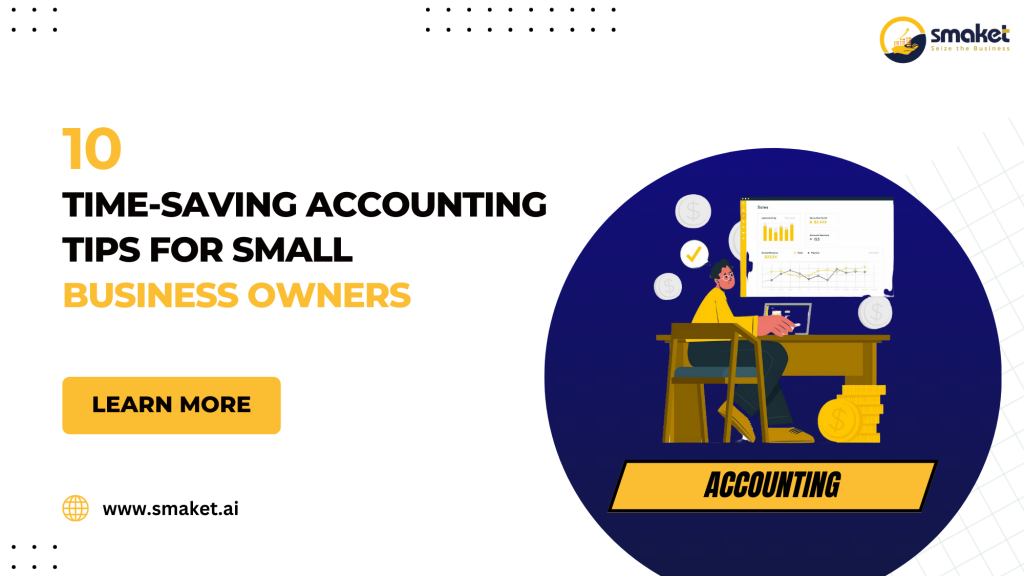As a small business owner, managing your finances efficiently is crucial for success. However, accounting can be time-consuming and overwhelming if not approached strategically. By streamlining your accounting processes, you can save time, reduce errors, and focus more on growing your business. In this blog post, we’ll cover 10 time-saving accounting tips that can help you stay organized and make the most of your accounting software.
1. Automate Your Invoicing Process
One of the simplest ways to save time on accounting is by automating your invoicing. Accounting software allows you to set up recurring invoices, generate them automatically, and send them to clients with just a few clicks. This eliminates the need for manual data entry and ensures that your invoicing is consistent and timely.
Tip: Choose accounting software that integrates with your customer database so you can generate invoices directly from client information.
2. Use Cloud-Based Accounting Software
Cloud-based accounting software offers the flexibility of accessing your financial data from anywhere at any time. This eliminates the need to be tied to a specific computer or location. Plus, cloud software often updates automatically, ensuring you always have the latest features and security.
Tip: Look for cloud accounting software with mobile apps, so you can manage your finances on the go.
3. Implement Real-Time Financial Tracking
Real-time financial tracking gives you up-to-the-minute insights into your business’s financial health. Accounting software can automatically update your records as transactions occur, which means no more waiting to input data manually.
Tip: Set up your software to link directly to your bank account to ensure transactions are recorded automatically in real-time.
4. Use Receipt Scanning and Expense Tracking Features
Managing receipts and expenses is often a tedious task. With accounting software, you can scan receipts and automatically categorize your expenses. This reduces the time spent on manual data entry and keeps your records organized.
Tip: Use mobile apps that allow you to snap a photo of receipts, which are then automatically uploaded and categorized in your software.
5. Set Up Automatic Bank Reconciliation
Bank reconciliation is essential for ensuring your records match your bank statements. Manually reconciling can take hours, but with the right accounting software, you can set up automatic bank reconciliation. This feature syncs with your bank account and matches transactions with your records, reducing human errors and saving time.
Tip: Schedule regular reconciliation checks to ensure your financial data is always accurate.
6. Use Financial Templates for Quick Reporting
Financial reports are crucial for making informed business decisions, but generating them can be time-consuming. Accounting software provides templates for common reports like profit and loss statements, balance sheets, and cash flow statements. These templates can be customized to fit your business needs, reducing the time spent creating reports from scratch.
Tip: Save custom reports within your software so you can easily access them whenever needed.
7. Integrate With Other Business Tools
Many accounting software options offer integrations with other business tools such as payroll software, customer relationship management (CRM) systems, and inventory management tools. By integrating these tools, you can save time by syncing data across platforms and avoid having to manually input information multiple times.
Tip: Look for accounting software that offers seamless integration with the tools you already use.
8. Simplify Your Tax Filing
Tax season can be one of the most stressful times for a small business owner. Fortunately, many accounting software options have built-in tax features that can automatically generate tax reports and help you track deductible expenses. By using these features, you can streamline the entire tax filing process.
Tip: Set reminders in your software for important tax deadlines to avoid last-minute rushes.
9. Regularly Review Financial Data
Spending just a few minutes each week reviewing your financial data can save you hours of work later. Make it a habit to check your income, expenses, and other key financial metrics regularly to catch any discrepancies or issues early.
Tip: Set a weekly or monthly reminder to check your financial data and ensure everything is on track.
10. Outsource Complex Tasks
While accounting software can handle most tasks, some complex issues (like payroll, taxes, or audits) may require professional help. Hiring a certified accountant to handle specific aspects of your accounting can save you time and ensure everything is done correctly.
Tip: Find an accountant who is familiar with your software and industry to ensure a smooth partnership.
Conclusion:
Accounting doesn’t have to be a time-consuming task for small business owners. By using smart accounting software and following these time-saving tips, you can streamline your accounting processes, reduce errors, and free up more time to focus on growing your business. Implementing automation, integrating other business tools, and utilizing cloud-based software are just a few ways to make your financial management more efficient.
If you’re looking to streamline your accounting processes and save time, Smaket accounting software is here to help! Smaket offers a user-friendly, cloud-based solution with powerful features like automated invoicing, bank reconciliation, real-time tracking, and tax reporting—all designed to make your accounting as efficient as possible. Whether you’re a small business owner or an entrepreneur, Smaket can help you stay organized, reduce errors, and free up valuable time to focus on growing your business.
Get Started with Smaket Today!
Don’t let accounting hold you back. Sign up for a free trial of Smaket and experience the time-saving benefits of advanced accounting software. Start automating your financial tasks and improve your business efficiency today!

